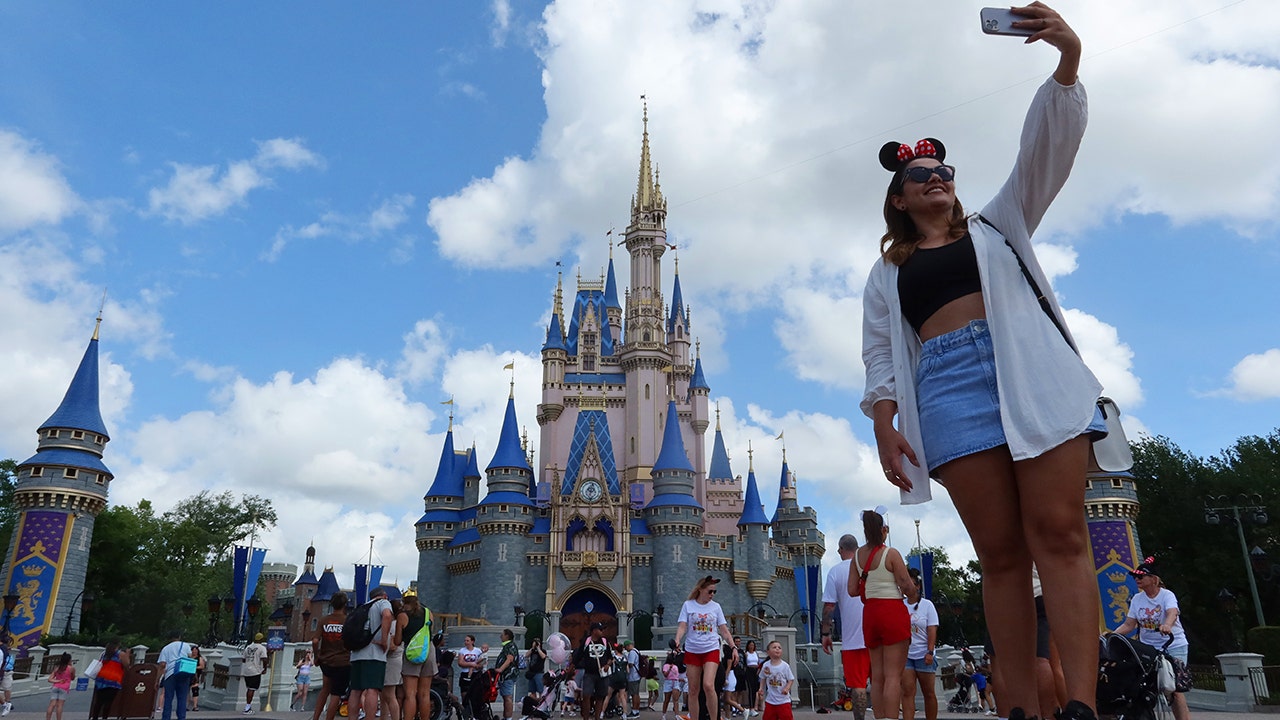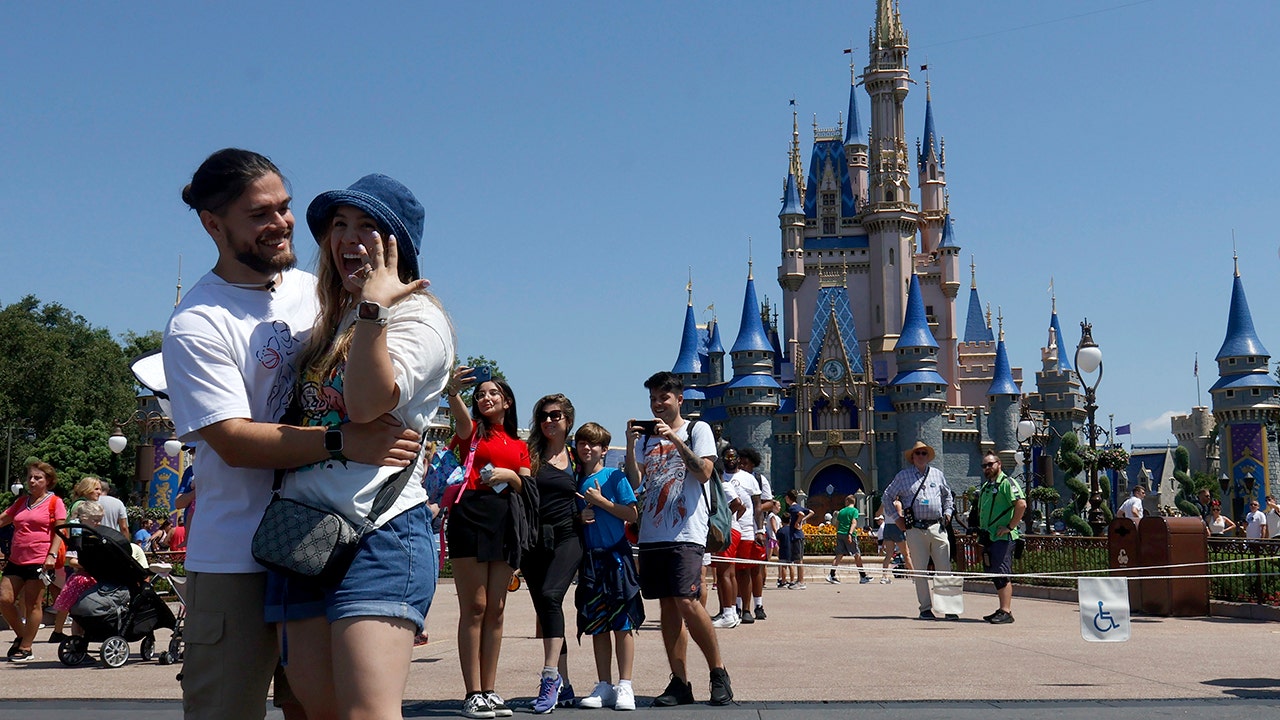For many adults, their hobbies range from fantasy football to Broadway shows or even day-trading. However, for a growing number of Americans, the passion lies in all things Disney. This group, often referred to as “Disney Adults,” has captured attention for their deep love and dedication to the brand.
A recent article highlighted that Disney enthusiasts are sometimes labeled as “the most hated group online.” This criticism is often fueled by viral stories, such as a 2022 Reddit post where a couple skipped wedding catering to afford a 30-minute appearance by Mickey and Minnie Mouse. While this may seem extreme, it’s not an isolated case. According to wedding planners, roughly 1,500 couples choose to get married at Walt Disney World in Orlando, Florida, each year.
Some fans take their love for Disney to the next level — literally. In the book “Disney Adults: Exploring (And Falling In Love With) A Magical Subculture,” author AJ Wolfe describes visitors who have scattered the ashes of loved ones on rides like the Haunted Mansion, despite park staff warnings. She writes about people who make one last trip to Disney before passing away and even purchase funeral urns etched with images of Cinderella Castle.
Wolfe also notes that Disney Adults often refer to “converting” their loved ones into fans, seeing Disney as a kind of spiritual experience. As the founder of the Disney Food Blog, she highlights how deeply integrated Disney is in the lives of its fans.

Wolfe spoke with a San Diego tattoo artist who exclusively creates Disney-related art and a couple who regularly fly from New York City to Disney World for a single overnight stay. They spend the next day in the park before catching an evening flight home. She describes how her community “maxes out credit cards to go” and counts down the days until their next trip, planning obsessively about what they will do, eat, wear, and experience.
She compares the excitement around new Disney films to the 1960s Beatlemania era. Journalists have noted an increase in child-free millennials and Gen Xers visiting Disney parks since the pandemic, with after-hours events, food festivals, and cocktails catering to an older crowd.

In 2023, Walt Disney World welcomed approximately 48.8 million visitors, according to reports. The phenomenon extends beyond the U.S., with parks in California, Tokyo, Shanghai, and worldwide Disney cruises also drawing large crowds.
Roy Schwartz, a pop culture historian and author based in New York, explains that part of Disney’s appeal lies in its reputation. He says, “Disney is probably the most iconic brand in entertainment. They’re the most associated with classic, timeless, innocent stories and characters. That’s very appealing to childless adults looking for a way to recapture or keep alive that feeling of delight and comfort.”
He adds, “Disney is also the most associated with uncompromising quality — just compare a Disney park with any other kind — which lives up to more demanding adult standards.”

While Schwartz acknowledges that some loyalty stems from corporate strategy, he believes much of it is organic. Adults seek community, identity, and simple joys, whether through Disney, Taylor Swift, CrossFit, or political movements.
“Being passionate about anything is great, but it sometimes becomes the thing that defines you,” he said. “I think in some cases, being a ‘Disney Adult’ ticks that box.”
Wolfe admits that Disney Adults are buying into what the multi-billion-dollar corporation offers. She describes the “smellizer” machines hidden in the parks that pump scents of apple pie, jasmine, and roses into the air to entice shoppers. “Everything at Disney is bigger, brighter, and more infused with visuals, smells, feelings, flavors, and sounds than what you typically have to process,” she wrote.

Critics often dismiss Disney fans as people who refuse to grow up, but Wolfe sees Walt Disney World as a safe, predictable escape. For her, it was still preferable to European, Alaskan, or Thai vacations after becoming a mother. She notes that Disney speaks English, uses American dollars, has simple transportation, and offers accessible urgent care for her asthmatic child. “I didn’t have to worry about reading endless reviews and hoping they were honest, only to arrive in the middle of the night at a strange hotel in a foreign town with my toddler in tow and be blindsided,” she wrote.
Experts agree that the appeal has less to do with immaturity and more to do with comfort, connection, and fun.
“Sometimes we need to revisit childlike spaces — like Disney — in order to heal our inner child,” said Dr. Robyn Koslowitz, a clinical psychologist and trauma specialist. Dr. Debra Kissen, CEO of Light On Anxiety Treatment Centers, called Disney a “turnkey escape,” noting that it offers safety, cleanliness, predictable logistics, and a reliable emotional arc.
“Some adults use the space more intentionally as a mood reset, a couples ritual, or a hobby,” she added. Others dive into Disney marathon races, memorabilia collecting, or food festivals.
However, fandom can tip into excess. Kissen advises asking, “Is work, sleep, or relationships suffering? Are you spending beyond your means or hiding costs? Can you skip an event without distress?”
“If yes to any, it’s time to set guardrails — budgets, trip frequency, ‘no-park’ months, or diversify your hobbies,” she said.
Schwartz, however, believes the criticism is often misplaced. “What nowadays doesn’t inspire intense online backlash?” he said. “It’s so silly and pointless to judge people over their harmless hobbies.”
“It’s hard being an adult,” he added. “And it seems to be more complicated and exhausting than ever … It’s important to make room for the simple joys in life, whether or not you have kids.”



